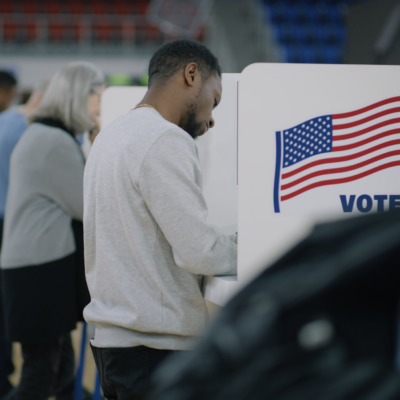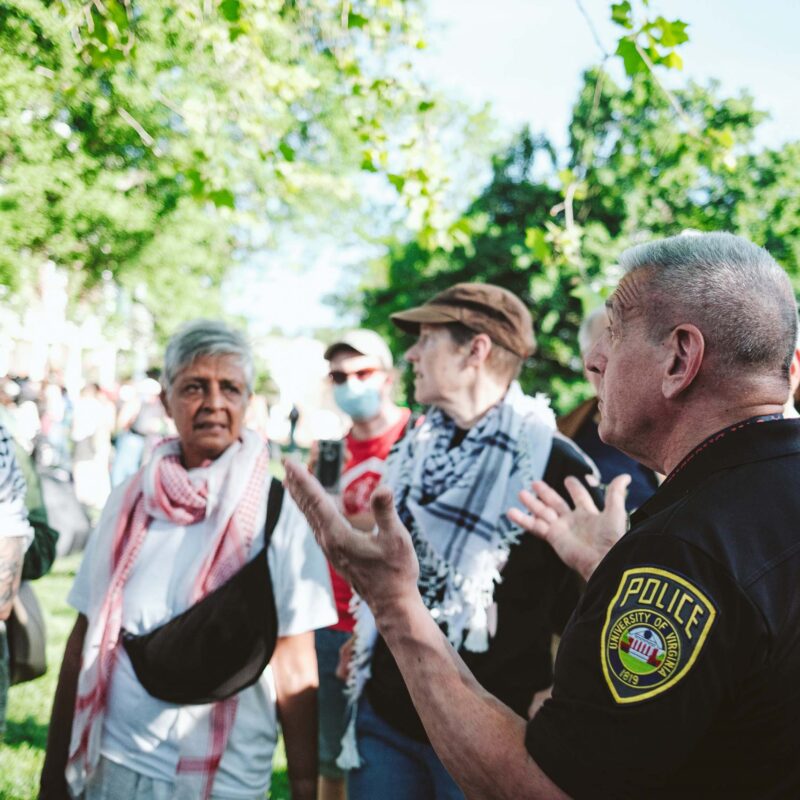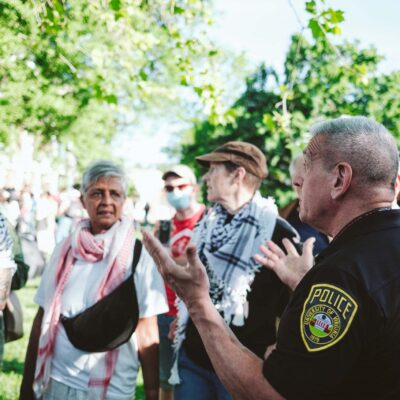In 2001, Cellular Materials International (CMI) was formed to commercialize technology invented at UVA by Haydn Wadley, a materials science and engineering professor. A year later, CMI received the first of many Department of Defense contracts for a type of cellular technology that held promise as a low-weight, high-strength protective paneling, making it ideal for deflecting jet blasts on aircraft carriers, or protecting armored vehicles from explosions.
By the end of 2005, CMI had received almost $4 million from the military for applications of their technology. Two years later, they are preparing to move offices to accommodate their burgeoning business and the 24 employees they share with a sister company called Directed Vapor Technology International. More contracts are on the way.
 The precision afforded by this welding robot could yield millions for UVA, which owns patents for much of the technology developed by local start-up Cellular Materials International. The precision afforded by this welding robot could yield millions for UVA, which owns patents for much of the technology developed by local start-up Cellular Materials International. |
“I think it has developed as good as we could have hoped for,” says CMI CEO Harry Burns. Burns was retired when he was asked to serve on CMI’s Board of Directors. “Retired people tend to decide it’s much more fun to be busy,” he explains, laughing.
Burns immediately set about transforming the start-up, and one of his first hires was Kerry Elzey to be CMI’s production manager. “When I came to work for the company it was very, very small,” Elzey says, recalling his first job interview. “We sat around a cardboard box,” he says. “I wondered, ‘What am I stepping into here?’“
As CMI grew, they added more employees, people like Manufacturing Technician Wiley Perry, a certified welding inspector and instructor. One afternoon, Perry and I stood in CMI’s warehouse and watched the MotoMan Robot, a welding machine with a 20′ reach capable of 0.005" precision that produces prototypes as small as 6" x 6" and as large as 7′ x 14′.
Because the cellular technology was invented at UVA, the University owns the intellectual property. For UVA, the potential benefits of the commercial partnership are two-fold: A professor suddenly has money for more research, and the University has an endless source of royalties. The benefits for their partners are obvious, but only if a company succeeds, like CMI has.
“Many small businesses don’t make it,” says Burns. “And we feel very fortunate.”
C-VILLE welcomes news tips from readers. Send them to news@c-ville.com.





